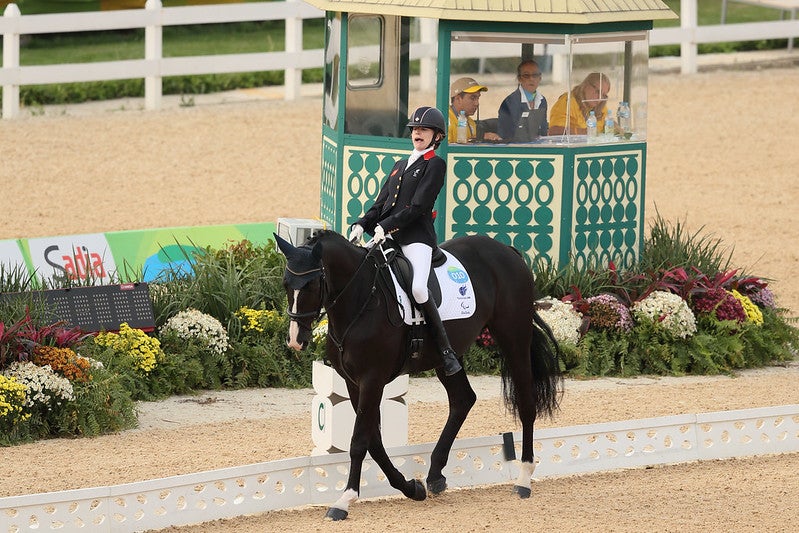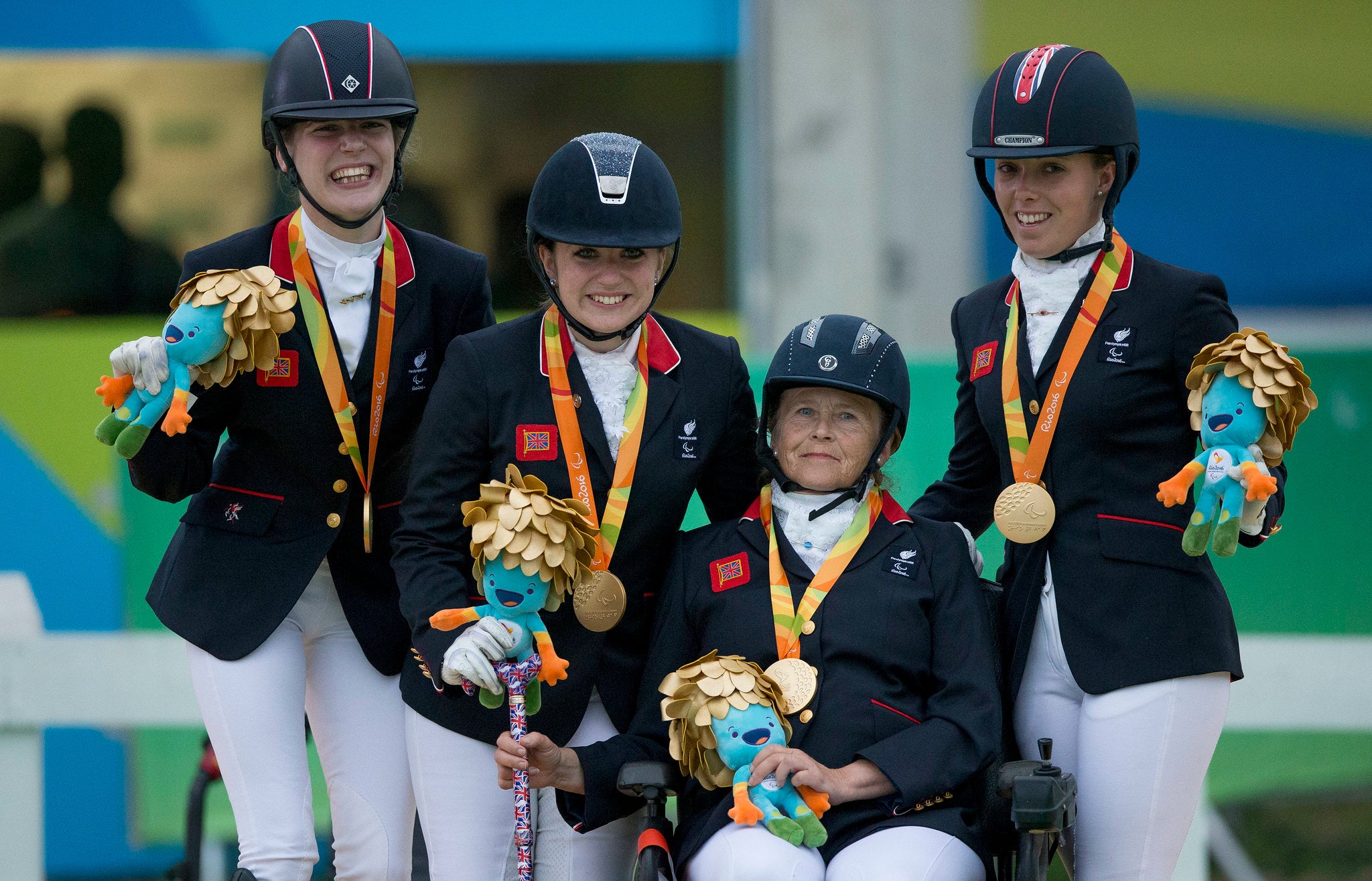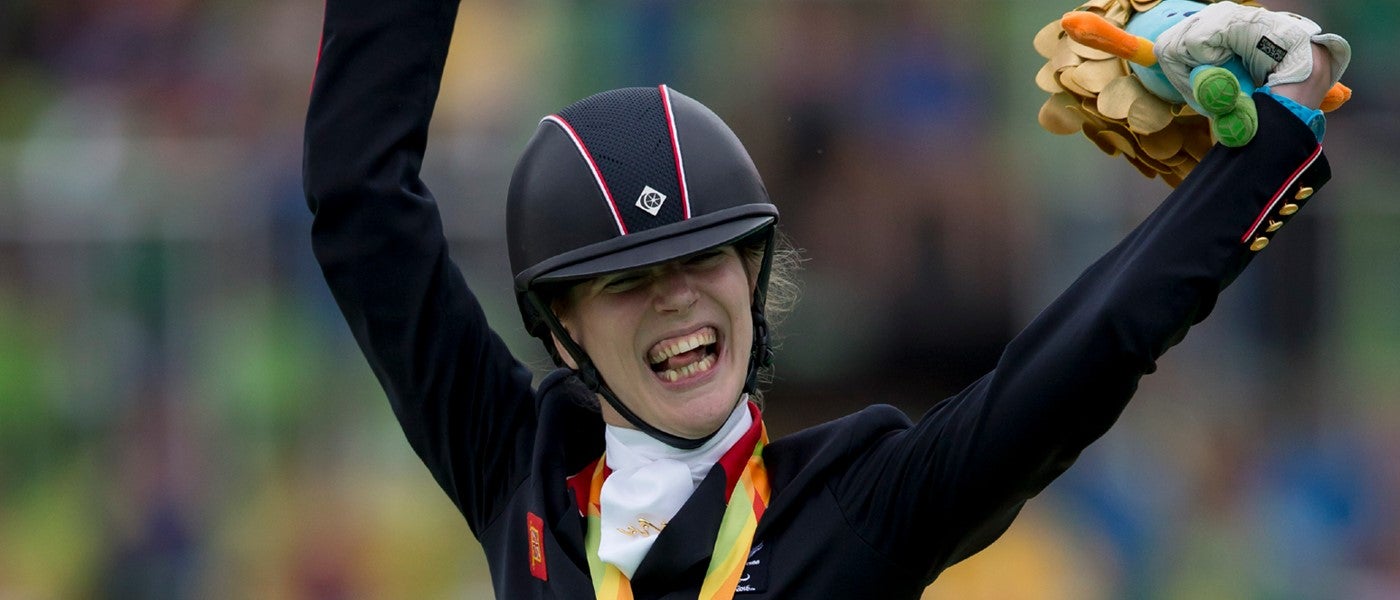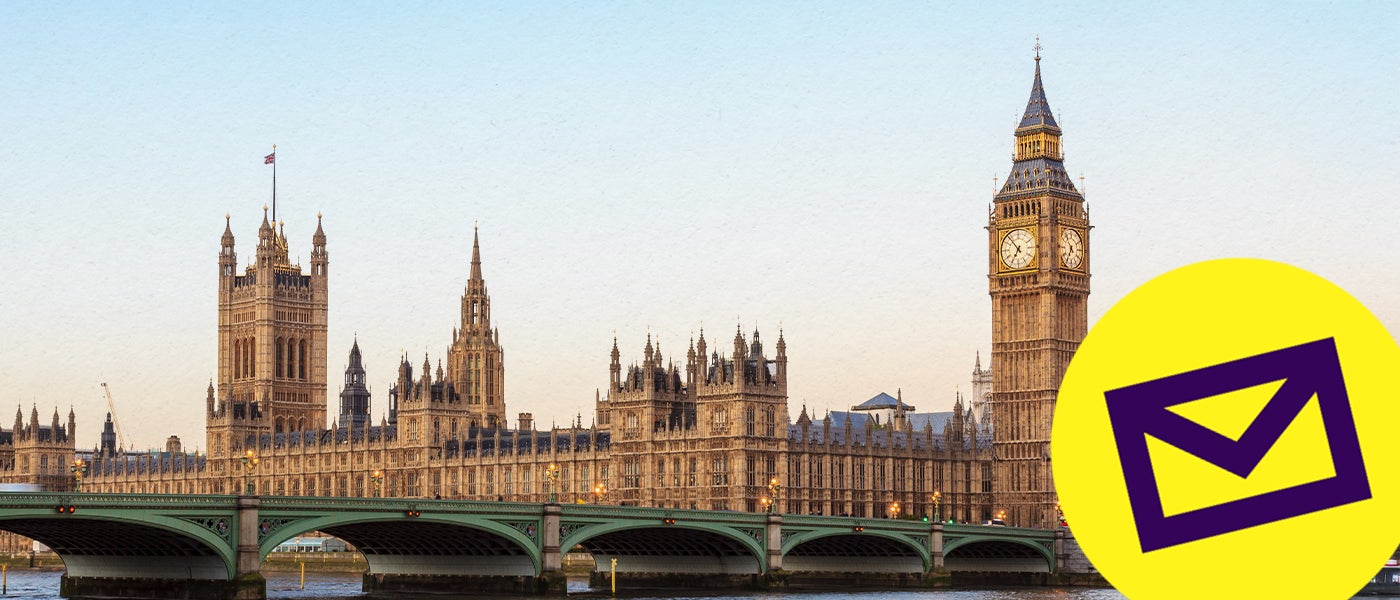- Home
- News and stories
- The Paralympics gives us an amazing platform to talk about what it's really like being disabled
The Paralympics gives us an amazing platform to talk about what it's really like being disabled
 22 August 2021
22 August 2021
As the Paralympics gets under way in Tokyo, we speak to eight-time Paralympic champion Sophie Christiansen CBE about life in lockdown, how we need to build back better and the role of the Paralympics as a catalyst for change.
Do you think the Paralympics should be about sport or something more?
Some disabled people said, that the 2012 Paralympics didn’t change things, but I do think it gives people like me an amazing platform to talk about what it’s really like to have a disability and I think it’s great that ParalympicsGB are trying bridge that gap.
It’s the Paralympics for a reason. Our story and our disability are what makes us different and that’s why the general public really gets behind us. Not everyone can be the fastest man in the world to run 200m, but with the Paralympics, everyone can overcome their own challenges. That’s what I think the Paralympics are about. When I compete it’s not the same as when Olympic athletes compete. I am different, and I can use that to my advantage.

What more can fans do for disability equality?
Disabled people need allies, like all marginalised groups. It doesn’t matter if you’re not disabled, you can still further your understanding of disability, and campaign for the rights of disabled people. I’m not blind, I’m not deaf, but I follow people on social media who have those impairments.
What I would say to the public is: improve your knowledge of disability. Be open and empathetic to what other people are going through. At your job, find out if your company is accessible to disabled customers and employees. Ask managers if their website is accessible, find out if your nearest shop is accessible. Ask these questions because doing it ourselves feels like a drop in the ocean - we need your help.
How did you find the lockdown?
When the pandemic hit my carer stopped coming because she was afraid, which is totally understandable as her mum is disabled as well but it meant that she stopped working for me. I had no one to step into her place. Luckily I live with my boyfriend who was working from home so that made it a lot easier but if he wasn’t here I’m really not sure what I would have done without my carer. I employ my own carers with direct payment in order to receive the level of flexibility care agencies are unable to give, but that means there is no safety net.
Information about PPE for our carers and finding out what was safe came far too late. Luckily I wasn’t having to shield, but I can imagine that getting online deliveries for food would have been so tough. Care was my number one issue though.

What needs to change as we recover from the pandemic?
Getting back out there as we return to normal is just making me remember how inaccessible the UK is. But, whereas before I would have spoken to the manager about accessibility issues, now I’m finding myself thinking “well we’ve had a really tough year, maybe they don’t have the finances to fix this.” It shows that we’re not in the forefront of people’s minds, people are focused on getting the economy back and stable, not on equality, even though we have money to spend.
A good thing about lockdown was that I could work from home. I work as a software developer In London. Losing that commute saved me lots of time and energy, and I do not miss battling with the trains in my wheelchair. Moving forward I’m probably going to work from home. Flexible working will really improve things for disabled people, as long as they get the right support from their employer to be able to work flexibly.
As we go back to normal, more focus should be put on accessibility and equality. I am quite fearful about how long that won’t be a priority for, for individuals and businesses and government. The important thing is opening up the conversation, a lot of problems with inaccessibility come from ignorance. Even I have ignorance about these things sometimes, but it’s about educating yourself.
I spoke to the manager of a pub which wasn’t accessible and told him they’d missed out my custom for years. They told me there was an accessible entrance round the back and I said they needed to tell people that! Two days later there was a sign outside. Even though it’s tiring to have these conversations, I think people don’t realise or think about disability, and that’s why the Government should do more.
After Rio 2016 I asked myself what I wanted to achieve next. And that was to use my platform at the next games to talk about disability. I worry that the media will want to make it a feel-good story, but I want people to see the reality of living with a disability in the UK.
About Sophie Christiansen
Sophie Christiansen CBE is a British dressage rider who has competed in four successive Paralympic Games and is currently an eight-time Paralympic champion and has won multiple World and European titles. In 2016, following her success at the Rio Paralympics, she placed fifth in the BBC’s Sports Personality of the Year the highest placed female and Para athlete.
Sophie was born two months prematurely with Cerebral Palsy and suffered from other health problems including jaundice, blood poisoning, a heart attack and a collapsed lung. Aged 6, she started riding for physiotherapy at the local Riding for the Disabled Association (RDA) group.
She first competed at the Paralympics aged 16 and was the youngest athlete for Great Britain at the Athens Paralympics in 2004, coming away with an unexpected bronze medal.
 22 August 2021
22 August 2021







